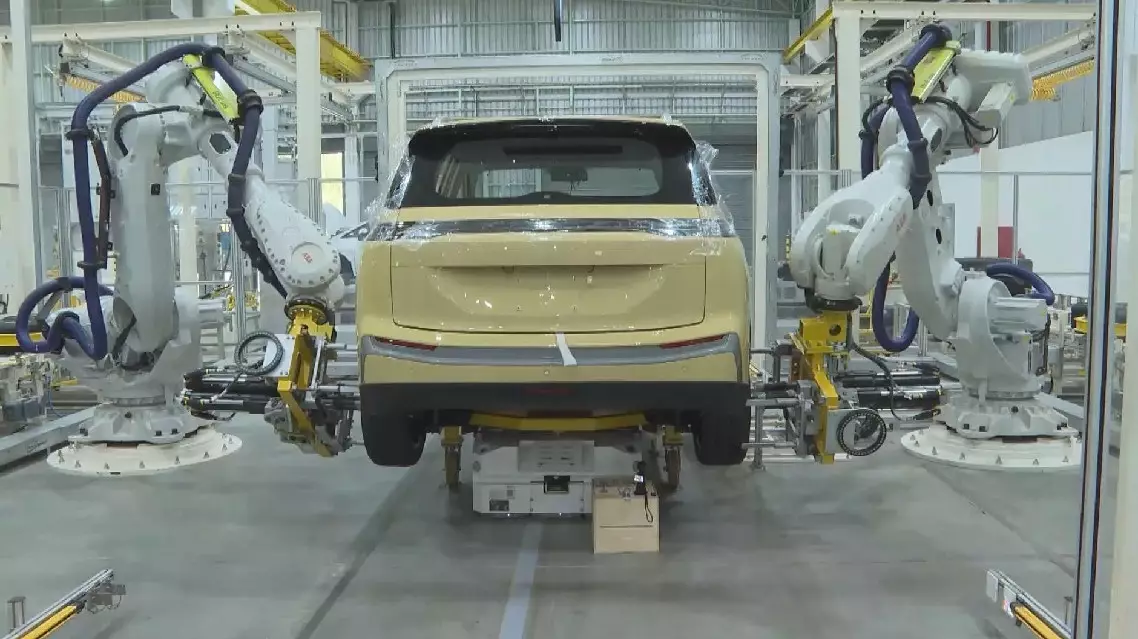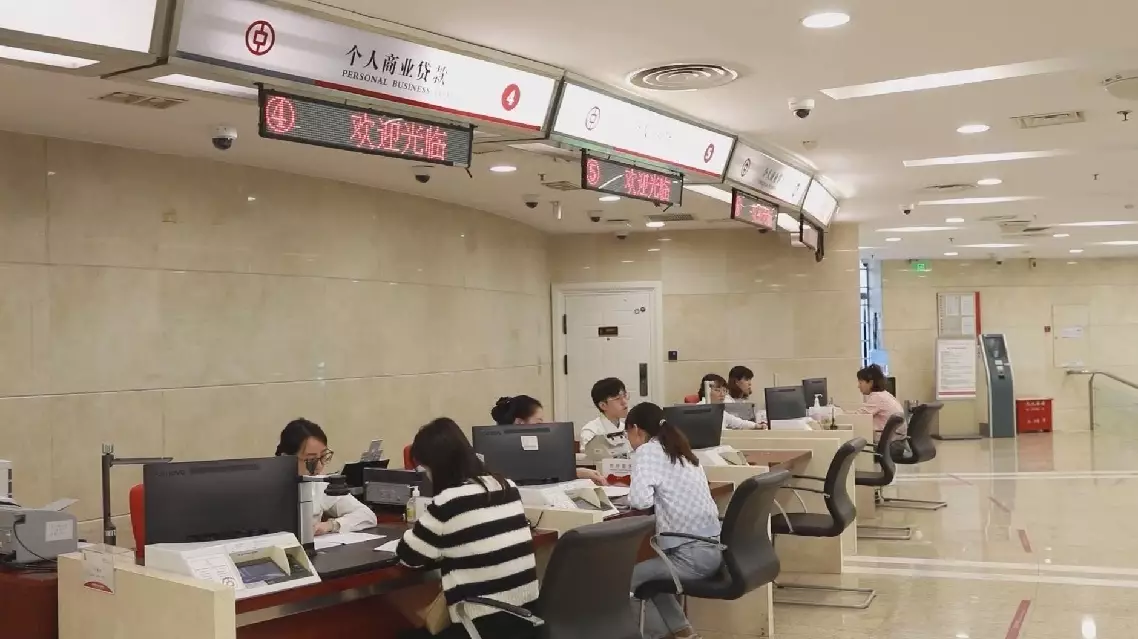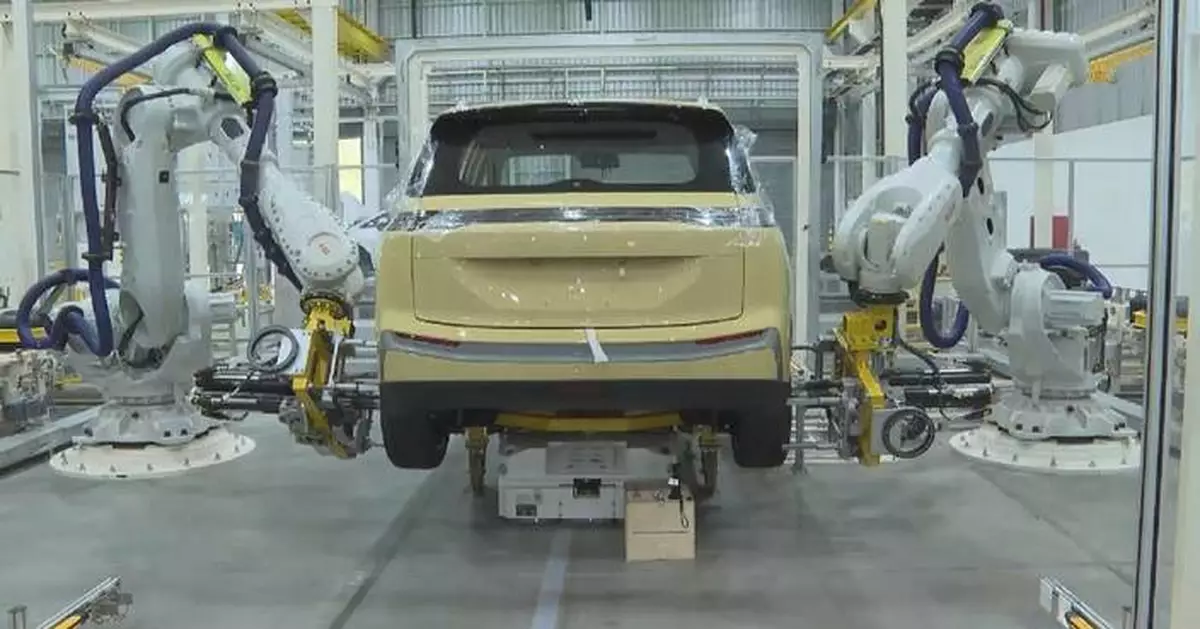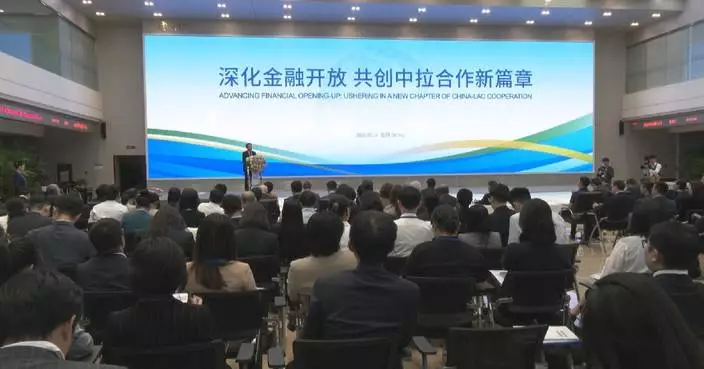Chinese automaker GAC Aion, a subsidiary of GAC Group, has built a "lighthouse factory" in Thailand, marking a milestone in the company's overseas expansion and its contribution to upgrading Thailand's automotive industry with advanced technologies.
Selected by the World Economic Forum, "lighthouse factories" are considered to represent the highest level of global intelligent manufacturing.
Located in Amata City Rayong Industrial Park in Thailand's Eastern Economic Corridor, the smart factory began operation in July this year with a planned investment of 2.3 billion baht (64 million U.S. dollars) and an annual capacity of 50,000 electric vehicles (EVs).
The factory is a highly intelligent plant which applies new technologies such as big data, artificial intelligence, and the Internet of Things to achieve more efficient production of multiple models.
It has the first and only fully autonomous mobile robotic auto production platform in Thailand, according to Ma Haiyang, general manager of GAC Aion Southeast Asia.
"As we know, traditional production lines are linear, sequential and unable to conduct flexible production. While our production line uses intelligent network technologies and an intelligent mobile platform that can automatically identify positions to enable intelligent and sequential production," Ma said.
Thailand has long been a major automobile production base in the Association of Southeast Asian Nations (ASEAN) region. With the help of the Thai government's investment promotion, EVs are expected to account for 30 percent of the country's total vehicle production by 2030.
GAC Aion officially launched its Thailand strategy in June last year and its first product was launched in September.
Chinese companies in Thailand and Southeast Asia at large are also working with local colleges to cultivate talents for the EV industry.
In recent years, GAC Group has vigorously expanded overseas markets. It now operates with automobile sales and after-sales services in 68 countries and regions.

China's EV brand operates "lighthouse factory" in Thailand
China recorded a relatively fast credit growth in the first four months of this year, providing solid support for the country's real economy, economists said.
China issued 10.06 trillion yuan (about 1.39 trillion U.S. dollars) in new yuan-denominated loans in the first four months of 2025, data from the People's Bank of China, the central bank, showed on Wednesday.
"The reasonable growth of new loans fully meets the effective financing needs of the real economy from equipment renewal in manufacturing to capital turnover in the service industry, and stimulates the vitality and creativity of market entities," said Lu Zhe, chief economist of Soochow Securities Co., Ltd.
Dong Ximiao, chief researcher of the Merchants Union Consumer Finance Co., Ltd, has also noted that at the end of April, the growth rate of yuan-denominated loans was still significantly higher than the nominal economic growth rate.
"In the fourth quarter of last year, the issuance of special refinancing bonds for debt repayment exceeded 2 trillion yuan. From January to April of this year, nearly 1.6 trillion yuan worth of such bonds were issued. Market research estimates that the corresponding loans to be replaced amount to about 2.1 trillion yuan. After adjustment, the growth rate of yuan-dominated loans remained above 8 percent at the end of April. It is expected that the growth of the financial aggregate will remain stable in the next stage," Dong said.
Meanwhile, financing costs remained at historically low levels. Data showed that the weighted average interest rate on new corporate loans issued in April was around 3.2 percent, about 4 basis points lower than that in the previous month, and the weighted average interest rate on new personal housing loans stood at about 3.1 percent.
"The steady growth of financial data in April indicates that the 'moderately loose' monetary policy has continued to show its effectiveness. The growth in both quantity and quality of loans, the reasonable increase in money supply, plus abundant liquidity, demonstrate the strong support of the financial system for the real economy," said Lu.

China's relatively fast credit growth provides solid support for real economy




















































